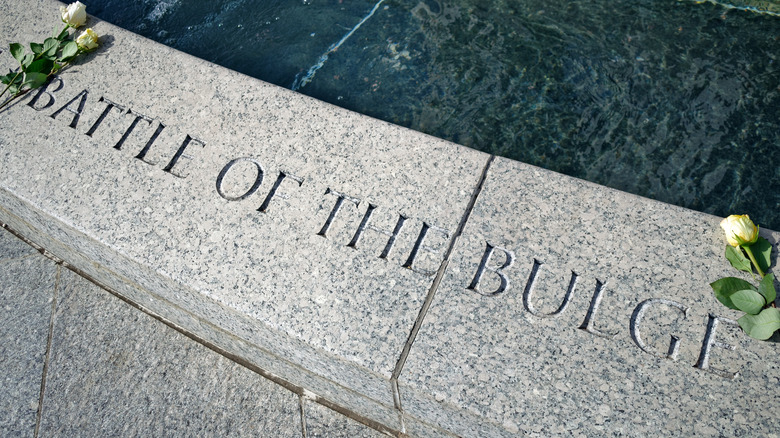The Most Under-Appreciated Allied Victory Of WWII
World War II has a unique notoriety in human history. During the conflict, horrors such as the Holocaust were perpetrated. The scale of this monstrous policy alone is difficult to comprehend: according to History, a total of around 11 million people were killed in the pursuit of the so-called "Final Solution," six million of whom were Jewish.
The Holocaust is just one tragic example of the sheer scale of lives lost during this war. Guinness World Records states that this was the costliest conflict ever in terms of lives. In total, from soldiers to civilians and everyone in between, around 56.4 million people were killed during World War II.
As The National World War II Museum reports, Germany surrendered to the Allies in May 1945, and Japan followed suit around four months later. This ended the war on the continent of Europe and globally, respectively. As with many protracted conflicts, though, both sides exchanged momentum frequently throughout the war, and there were long stretches when Allied victory seemed anything but assured. Unlikely, even.
One particular victory the Allies secured would have a monumental impact on the way the conflict would play out, but it isn't often recognized for its true significance.
The Battle of the Bulge
As the grinding combat of 1944 went on, Germany found its resources increasingly strained. Per Britannica, May of this year saw offensives concentrated on the nation's oil production, which in tandem with the deaths of its best pilots left the Luftwaffe severely blunted as a fighting force. This, in turn, afforded the Allies the opportunity to cause more damage to German infrastructure.
The Soviet Red Army, meanwhile, was making quite a rapid pace through the continent. Though the German army had its back to the wall, metaphorically speaking, there was no denying that it remained a potent fighting force, and the fortunes of many (and the outcome of the conflict, in a very real way) would be reliant on what became known as the Battle of the Bulge.
This bloody battle, per History, took place in and around the Ardennes forest in Belgium, in December 1944 and January 1945. It was, in effect, a last-ditch effort from Adolf Hitler, to break through the foes that were approaching and divide and conquer them. By doing so, Hitler reportedly hoped that he could still achieve victory. Had this terrible battle gone differently, he could have potentially done just that.
Antwerp was key
The U.S. Army Center of Military History explains the origins of the battle's name. The resource states that German forces had the initiative at first, as the inclement weather conditions prevented the Allies from using their air superiority against them. The British and U.S. forces, in addition, were not expecting such an assault and had committed numbers elsewhere. As a result, the German advance "bulged" through the defenses arrayed against them. Fortunately for the Allies, this bulge was contained.
As Hitler seemed to hope, the Allies initially struggled to combine their numbers, but were able to regroup and fortify their beleaguered positions. As they did so, per Britannica, supplies failed to keep up with the rapid German press, and the same terrain that had hidden their approach from the Allies now restricted their movements. Narrow paths were more easily defended by the U.S. forces, and the Allies won the battle on January 25, 1945, History states. It came at a heavy cost that brutal winter, the U.S. Army Center of Military History reports, but the cost was far greater for Hitler's forces: Up to 100,000 German troops were lost, and the Allies' inexorable march was able to continue.
Britannica states that a primary German objective was to deny the Allies' access to the port of Antwerp. Had they been able to do so, the resources necessary for the final push into Germany itself would have been very difficult indeed to muster.


